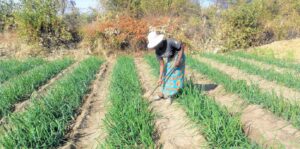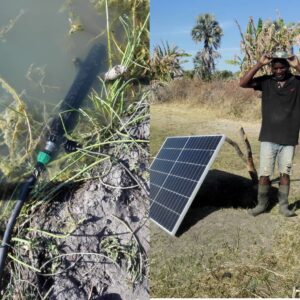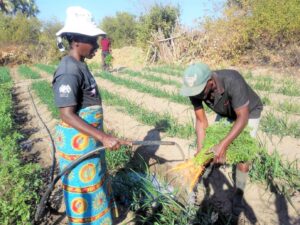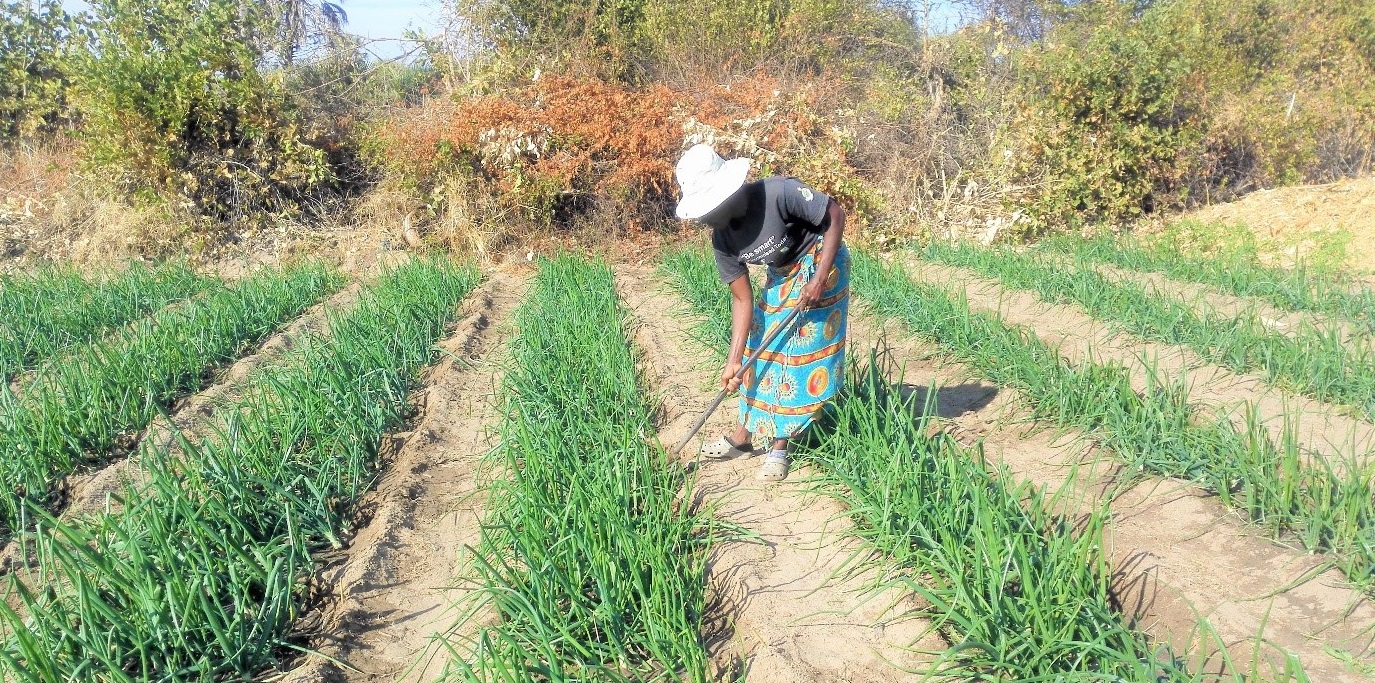A Self Help Group couple embraces renewable energy to improve livelihoods.
Sustainable farming practices premised on farming as business approach can help create a better life for families. With the help of Hand in Hand Zimbabwe, a couple from Jibajiba village Ward 20 in Lupane District, has been able to improve their household income through training and support from the organization.
Phineas Ncube (60) and Sibusiso Ncube (51) are members of the Wozubone Self Help Group (SHG) which consist of thirteen (13) members, of which eight (8) are females and five (5) are males. The couple runs a horticultural garden enterprise. The agripreneurs expressed their gratitude for the support they received from Hand in Hand Zimbabwe and admitted that it has impacted positively and improved their livelihoods.

(Picture of: Sibusiso Ncube weeding her onions garden before watering using bucket system)
“As horticulture farmers, in 2022 we were struggling to increase production and volumes in our sales. On average we could make US$50 per month from selling leaf leafy vegetables, onions, tomatoes, peppers, beetroot, and carrots,” said Phineas.
“One challenge we had was low production because we were using bucket system for watering the vegetables. However, after being trained in adoption of environmentally friendly and climate smart technology by Hand in Hand Zimbabwe we made savings as a family and bought a set of solar powered pump at the cost of US$450.

(Picture of: Phineas Ncube after purchasing his solar powered water pump)
The solar powered pump has enabled the couple to water their crops more efficiently and effectively while allowing them to expand their area of cultivation. The solar pump has greatly reduced the labour and time the couple took to water their vegetables. The couple’s enterprise draws water from a dam that is 60 meters away. Furthermore, they have been able to use the income generated to meet their basic needs and pay for their five (5) children’s school fees whilst some funds are channeled towards group Internal Savings and Lending (ISALs) contributions of US$3 monthly per member.
“Since the installation of the solar powered pump, we are happy to supply our produce to the community, local schools, restaurants and approximately we get US$50 on a weekly basis,” said Phineas.

(In picture: The couple watering their carrots produce after the solar powered water pump was installed).
Renewable energy sources such as solar energy can provide self-help group members with access to reliable low-cost electricity. This has the potential to reduce their operating costs and increase their profitability. Additionally, these renewable energy sources can help reduce air pollution and reduce the impact on the environment.
The couple plans to integrate other climate smart practices such as drip irrigation to save more water and ease labour. Mr and Mrs Ncube are a testimony to the benefits of engaging in climate smart agricultural practices.

